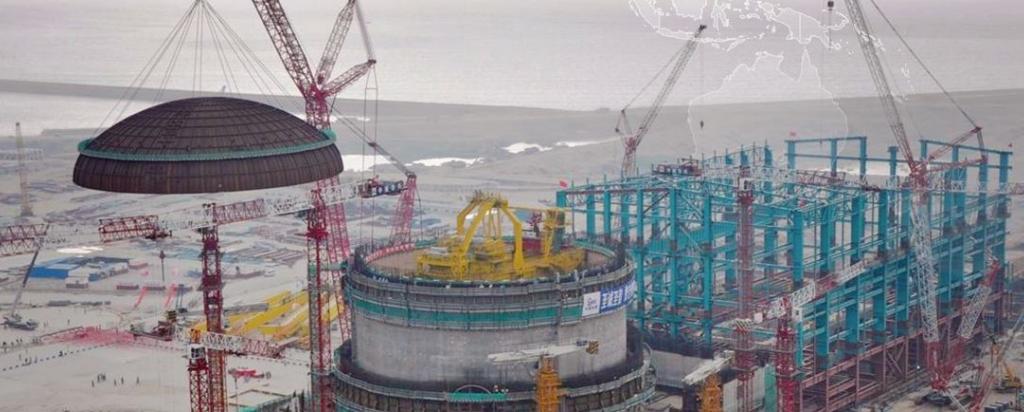Anglesey’s Wylfa Emerges as Preferred Site for Major Nuclear Power Plant, Confirms UK Government
Anglesey’s Wylfa site has been earmarked as the preferred location for a significant nuclear power plant, according to an announcement by the UK government.
The site was acquired by the government for £160 million from previous developers Hitachi, who shelved plans for a new reactor in 2019.
Discussions have commenced between international energy firms and the UK government to kickstart the construction of the new Wylfa facility.
UK Energy Secretary Claire Coutinho emphasized that the site would generate “thousands of well-paid jobs.”
Welsh Secretary David TC Davies refrained from setting a timeline for the construction and operational readiness of the power station. However, he affirmed that Wylfa is poised to host a nuclear power station.
While addressing inquiries about the readiness by 2040, Davies acknowledged the historical timeframe associated with such projects.
Several international energy companies have expressed interest in investing in the site. Davies mentioned informal discussions with representatives from South Korean energy company Kepco.
Wylfa’s proposed power station would be comparable in scale to the Hinkley facility in Somerset and the planned development at Sizewell in Suffolk.
Located on the north coast of Anglesey, Wylfa previously housed a nuclear power station in the early 1970s.
The UK government aims to quadruple nuclear power capacity by up to 25 gigawatts by 2050, with a new generation of plants replacing older facilities as they near the end of their operational lifespan.
Coutinho emphasized Anglesey’s historical significance in nuclear energy, highlighting its role in enhancing the UK’s energy security.
She underscored Wylfa’s potential to deliver clean, reliable power to millions of homes while catalyzing job creation and investment in North Wales.
Wylfa’s previous power station ceased operations at the end of 2015. Hitachi’s cancellation of plans for a new reactor in 2020 led to the site being mothballed.
During the spring Budget, Chancellor Jeremy Hunt announced the government’s acquisition of the site from Hitachi.
In addition to Wylfa, the government also acquired a separate Hitachi-owned site in Oldbury, Gloucestershire.
Great British Nuclear, tasked with bolstering nuclear power generation, facilitated the acquisition of both sites. The organization is exploring the utilization of small modular reactors alongside large-scale power plants.
Gwen Parry-Jones, CEO of Great British Nuclear, anticipates the forthcoming market engagement program for large-scale gigawatt providers.
Jo Stevens, UK Labour’s shadow Welsh secretary, welcomed the progress while urging tangible outcomes for the people of Anglesey.
The announcement has political significance, with Anglesey being a contested constituency among Conservatives, Labour, and Plaid Cymru.
Notably, nuclear projects offer prestige, job opportunities, and contribute to green targets, although concerns linger regarding costs and past experiences.
Campaign group People Against Wylfa B (Pawb) opposes the nuclear venture, advocating for investments in renewable energy alternatives.
The Financial Times reported early talks between South Korean state energy company Kepco and the UK government regarding the new Wylfa power plant.
Prospect, a union representing nuclear industry workers, hailed Wylfa as Europe’s prime location for large-scale nuclear power, stressing its role in achieving net zero targets and bolstering the Welsh economy.











